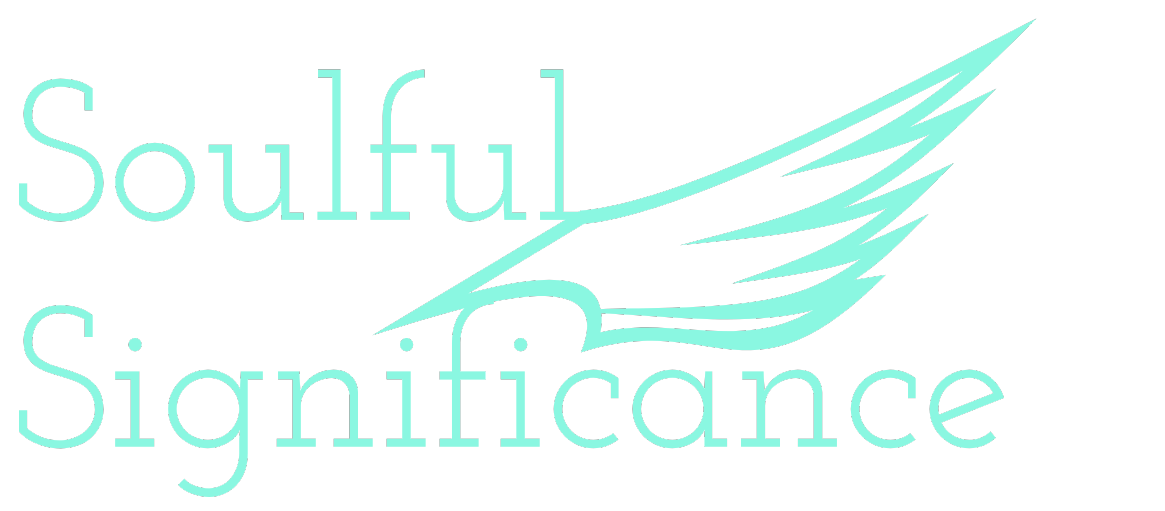Spiritual Meanings of Recovery: 12 Divine Messages
As we explore the spiritual meanings of recovery, we'll uncover twelve divine messages that guide us on our journey toward healing and wholeness. These messages invite us to embrace change, find inner peace, and connect with our higher selves, while also highlighting the importance of community and self-love. Each message offers a unique insight into the transformative power of forgiveness and the lessons that come from letting go. But what might these revelations mean for our personal growth and purpose? Let's uncover the significance behind each of these messages together.
Key Takeaways
- Recovery signifies a transformative journey, encouraging acceptance of change as a pathway to personal growth and resilience.
- Embracing mindfulness fosters inner peace, allowing individuals to navigate emotional challenges and find clarity in the present moment.
- Connection with community and shared experiences nurtures a sense of belonging, enhancing the healing process through collective support.
- The power of forgiveness, both self and others, is essential in releasing burdens, promoting self-love, and deepening relationships.
- Discovering one's purpose serves as a guiding light in recovery, aligning actions with core values and fostering fulfillment in life.
Embracing Change
In the journey of recovery, embracing change is often the first step we take toward healing and growth. Change can feel intimidating, but it's essential for our transformational growth. We're not alone in this; together, we can support each other as we navigate the ups and downs.
Adopting an adaptive mindset allows us to view change as an opportunity rather than a threat. We might find that our fears often stem from the unknown, but by leaning into these moments, we open ourselves to new possibilities. Each small step we take can lead to profound shifts in our lives, helping us build resilience and strength.
We've all experienced moments when change felt overwhelming, but remember, it's in these very moments that we discover our capacity for growth. When we embrace change, we're not just transforming ourselves; we're also creating a sense of belonging within our community.
Let's encourage one another to face these challenges head-on, cultivating an environment where we can thrive together. By embracing change, we're not just surviving; we're learning to live fully and authentically, paving the way for a brighter tomorrow.
Finding Inner Peace
Embracing change paves the way for us to discover inner peace amidst the chaos of recovery. We often find ourselves overwhelmed, seeking solace in the noise of our emotions. By turning inward and practicing mindful meditation, we can cultivate a sense of calm that helps us navigate this tumultuous journey together.
Creating peaceful surroundings is essential. When we surround ourselves with tranquility—whether it's a quiet room, a park, or a cozy corner at home—we foster an environment conducive to reflection and healing. We can light a candle, play soft music, or simply listen to the sounds of nature. These small actions invite serenity and remind us that peace is always within reach.
As we share our experiences and support each other, we learn that finding inner peace doesn't mean escaping our struggles. Instead, it's about embracing the present moment, acknowledging our feelings, and allowing ourselves the grace to heal.
Together, we can encourage one another to pause, breathe, and find that stillness within, knowing we're never alone on this path. Our journey towards inner peace is a collective one, and we're all deserving of it.
Connection to Higher Self
Many of us find that connecting with our higher self is a transformative part of the recovery process. As we navigate our journeys, we often discover that this connection opens the door to higher consciousness, allowing us to see beyond our struggles. Embracing our higher self helps us align with our true purpose, fostering a sense of belonging that we may have longed for.
When we engage in practices like meditation, mindfulness, or simply spending time in nature, we cultivate spiritual alignment. These moments invite us to listen to our inner voice, guiding us toward healing and growth. We start to recognize that we're not alone; we're part of a greater whole, interconnected with others who share similar paths.
As we deepen this connection, we become more attuned to our needs and desires, empowering us to make choices that resonate with our authentic selves. It's a journey of self-discovery, where we learn to trust our intuition and embrace the wisdom within.
Together, let's honor our higher selves, knowing that this connection will lead us toward a brighter, more fulfilling life.
The Power of Forgiveness
Forgiveness holds a profound power in our recovery journeys, offering us a chance to release burdens that weigh heavily on our hearts. We often find ourselves trapped in cycles of regret and resentment, both towards ourselves and others.
It's essential to remember that forgiving oneself is one of the most significant steps we can take. When we let go of guilt, we open the door to self-compassion and understanding, allowing us to heal and grow.
As we navigate our paths, we may also recognize the importance of healing relationships. Forgiveness isn't just about absolving others; it's about creating space for connection and love. By choosing to forgive, we can mend rifts and foster deeper bonds, nurturing a sense of belonging that we all crave.
Let's acknowledge that forgiveness is a process, not a one-time event. It requires patience and commitment, but the rewards are immeasurable.
Together, we can cultivate an environment where we support one another in this journey. Embracing forgiveness empowers us to move forward, transforming pain into strength and fostering a community built on love, acceptance, and unity.
Lessons in Letting Go
As we work through the healing process, we often find that letting go is just as important as forgiving. Embracing the lessons in letting go can lead us to a beautiful healing release, granting us the emotional freedom we crave.
It's not always easy, but together we can explore what it means to release the burdens that weigh us down.
Here are three key lessons we can learn about letting go:
- Acceptance: Acknowledge that some things are beyond our control. Accepting this can help us release feelings of frustration and helplessness.
- Self-Compassion: We must be gentle with ourselves as we navigate this journey. Recognizing our worth allows us to let go of negative self-talk and embrace our true selves.
- Trust in Change: Letting go opens up space for new beginnings. Trust that change can lead to growth and transformation, even if it's uncomfortable at first.
Cultivating Gratitude
Cultivating gratitude can transform our perspective and enrich our recovery journey. When we intentionally embrace gratitude practices, we create a deeper connection to ourselves and the world around us.
It's not just about acknowledging the big moments; it's about finding joy in the small things, too. Each day, we can take a moment to reflect on what we appreciate, whether it's a warm cup of coffee, a kind word from a friend, or even the beauty of nature.
By cultivating mindfulness, we become more aware of these precious moments, allowing gratitude to flow more freely into our lives. As we share our experiences with one another, we foster a sense of belonging that's essential in our recovery.
Let's remember that gratitude doesn't diminish our struggles; instead, it gives us strength and perspective. It reminds us that even on challenging days, there's always something to be thankful for.
Together, we can build a culture of gratitude that supports our healing and growth. By practicing gratitude, we're not just enhancing our recovery; we're also nurturing a community that thrives on connection and compassion.
Strength Through Vulnerability
Gratitude opens the door to a deeper understanding of ourselves, and with that understanding comes the recognition that vulnerability isn't a weakness but a source of strength.
When we embrace authenticity, we allow ourselves to be seen in our true form, imperfections and all. Together, we can cultivate a sense of belonging that thrives on openness.
Here are three ways we can harness strength in vulnerability:
- Share Our Stories: By opening up about our experiences, we encourage others to do the same, creating a safe space for connection.
- Practice Self-Compassion: When we show kindness to ourselves in moments of vulnerability, we build resilience and foster a supportive environment for growth.
- Seek Connection: We should surround ourselves with people who appreciate our authentic selves, reminding us that we're not alone in our struggles.
As we navigate our recovery journeys, let's remember that embracing vulnerability isn't just about acknowledging our challenges; it's about celebrating our courage to be real.
Together, we can find strength in vulnerability and transform our journeys into a powerful reflection of resilience and community.
Trusting the Journey
In the midst of our recovery journeys, we often find ourselves grappling with uncertainty about the path ahead. It's normal to feel anxious when we can't see where we're going, but that's where journey acceptance comes into play.
Trusting the journey means embracing the unknown, allowing ourselves to surrender to the process of healing.
Together, we can learn to cultivate faith development in our lives. This faith isn't just about believing in something greater; it's about trusting that each step we take, even the difficult ones, brings us closer to our true selves.
We're reminded that every twist and turn holds valuable lessons, even if we can't see their significance right now.
As we navigate our paths, we can lean on each other, sharing our experiences and offering support. We're not alone in this; the connections we form can help us find strength in vulnerability.
So let's hold onto hope and trust in our collective journey. By embracing uncertainty with open hearts, we'll discover that the journey itself is just as important as the destination.
Together, we'll find our way forward.
Awakening to Purpose
Purpose often feels like a distant lighthouse guiding us through the fog of our recovery. As we navigate this journey, we often find ourselves yearning for a deeper connection to our true selves.
Awakening to purpose isn't just about finding what we're meant to do; it's about embracing our soul discovery and aligning our actions with our authentic selves.
Here are three ways we can start this awakening together:
- Reflect on Our Passions: Let's take time to think about what truly excites us. What brings us joy? Identifying these passions helps illuminate our path.
- Embrace New Experiences: Trying new things can lead us to unexpected insights. We should remain open to opportunities that spark curiosity and growth.
- Connect with Our Values: Let's examine what values resonate deeply within us. Aligning our actions with these values can help us feel more fulfilled and purposeful.
As we initiate this journey of awakening, let's support one another in our soul discovery.
Together, we can navigate the path toward purpose alignment, creating a life that feels meaningful and connected.
The Role of Community
Finding our purpose often leads us to recognize the importance of community in our recovery journey. Together, we can lean on one another, sharing our experiences and understanding that we're not alone in this process. Community support becomes our lifeline, reminding us that there's strength in unity and that healing is often more profound when we engage with others who truly get what we're going through.
As we gather in circles of support, we witness the power of shared experiences. These moments remind us that each story, each struggle, contributes to a collective narrative of resilience. In our community, we find encouragement and inspiration, as others bravely share their journeys and triumphs.
Let's embrace the idea that healing isn't just an individual pursuit; it's a shared endeavor where we uplift one another. By building connections, we foster a sense of belonging that nurtures our spirits.
When we come together, we create a safe space where vulnerability is welcomed, and hope flourishes. This is the essence of community in recovery—an opportunity for growth, connection, and profound transformation as we support each other on our paths.
Nurturing Self-Love
Embracing self-love is an essential step in our recovery journey, as it helps us build a solid foundation for healing.
When we nurture self-love, we create a safe space for our hearts to heal and grow. It allows us to foster connections and deepen our relationships with ourselves and others.
Here are three self-compassion practices we can adopt together:
- Daily Affirmations: Let's remind ourselves of our worth every day. Speaking kind words can shift our mindset and reinforce our self-love.
- Mindful Reflection: Taking a moment to reflect on our feelings helps us understand our needs. We can embrace our emotions without judgment, fostering acceptance and compassion.
- Nurturing Relationships: Surrounding ourselves with supportive people is important. Together, we can cultivate connections that uplift us and encourage our growth.
Embracing the Present
The present moment is like a warm embrace, inviting us to pause and appreciate the here and now. In our journey of recovery, we often find ourselves dwelling on the past or worrying about the future. Yet, it's in this very moment where we can discover peace and clarity.
By embracing the present, we give ourselves permission to heal and grow. Mindfulness practices can guide us in this process. Whether it's taking a few deep breaths, savoring a meal, or simply noticing our surroundings, these small actions help anchor us in the present moment.
When we actively engage with our experiences, we cultivate a deeper connection to ourselves and each other. We're not alone in this journey; we're part of a community that understands the struggle.
By sharing our experiences, we create a safe space where we can support one another. Together, let's embrace the present, recognizing that each moment holds the potential for transformation.
In doing so, we not only nurture our own well-being but also strengthen the bonds that unite us. Let's cherish this moment, for it's where our healing truly begins.
Frequently Asked Questions
How Can I Discern My Spiritual Path During Recovery?
As we navigate our self-discovery journey, let's seek spiritual guidance through reflection, connection, and openness. Together, we can explore our paths, embracing each moment, and finding strength in our shared experiences and growth.
What Role Does Meditation Play in Recovery?
Meditation's essential in our recovery journey. It fosters mindfulness techniques and enhances breath awareness, helping us connect with ourselves. Together, we cultivate inner peace, build resilience, and support each other through these transformative moments.
How Can I Develop a Consistent Gratitude Practice?
To develop a consistent gratitude practice, we can start gratitude journaling daily and include gratitude affirmations. Let's create a warm space for reflection, celebrating our journey together and nurturing a sense of belonging and appreciation.
What Are Some Signs of Spiritual Awakening in Recovery?
When we experience spiritual awakening in recovery, we often feel a profound spiritual clarity and inner peace. These moments remind us we're not alone, guiding us toward deeper connections and a more meaningful life together.
How Do I Maintain Hope During Challenging Recovery Moments?
When we face challenging recovery moments, we can lean on hope strategies like meditation and community support. Uplifting practices, such as gratitude journaling, remind us we're not alone and help us stay connected and resilient.

I’m Eliza Trinity, a spiritual guide and writer at SoulfulSignificance.com, where my mission is to illuminate the path of spiritual fulfillment through Christ’s teachings. With a Theology degree and a counseling background, I blend biblical wisdom with real-world insight to support those on their journey to discovering their soul’s significance.






